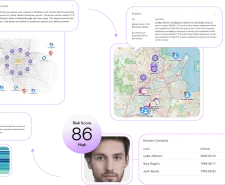
AML Investigations: Detecting High-Risk Transactions with Network Analytics
October 4, 2024 · 6 min read

GraphAware: Finding Truth in Data
October 4, 2024 · 2 min read

Reimagining Intelligence Visualisation: An Inside Look at Action Boards with GraphAware CEO & Head of Product
August 30, 2024 by Michal Bachman, Miro Marchi · 8 min read

The Importance of Connected Data Analytics in Modern Military Intelligence
July 29, 2024 by Gabriel T. · 5 min read

What’s new in Hume 2.24?
July 1, 2024 by Danica Stankovic · 5 min read

GraphAware & Senzing: Supercharging Intelligence Analysis with Advanced Entity Resolution
June 26, 2024 · 2 min read
